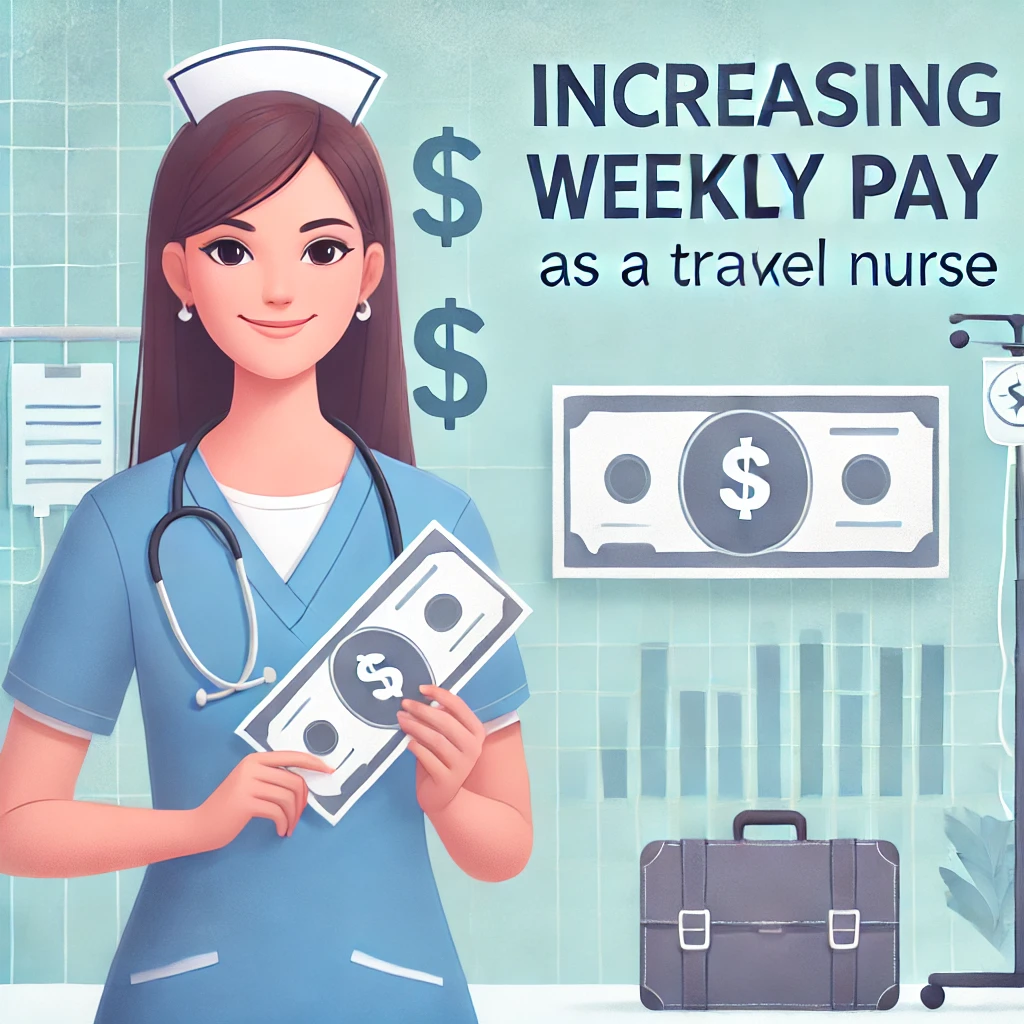The concept of a traveling nurse salary is unique, offering opportunities to earn well above what permanent staff nurses typically make. By combining hourly wages, non-taxable stipends, and bonuses, traveling nurses can significantly increase their earnings. However, navigating the intricacies of these pay packages is essential to ensure you’re getting the most out of your assignments. This article will break down the components of a traveling nurse salary, explore factors influencing pay, and provide actionable tips to maximize your income.
Understanding Traveling Nurse Salary Components
Traveling nurses are compensated differently than permanent staff nurses. The pay packages often include a combination of hourly wages and non-taxable stipends for housing and meals. The potential for a higher salary largely depends on understanding these pay structures and negotiating the best possible deal. Here are the key components of a traveling nurse salary:
- Hourly Wage: The base salary for a traveling nurse. This varies depending on location, specialization, and nurse demand in a particular area.
- Stipends are non-taxable allowances for housing, meals, and incidental expenses. The amount is often determined by the cost of living in the assignment location.
- Bonuses: Some agencies offer sign-on, completion, and referral bonuses, which can add to your total earnings.
- Overtime Pay: Many facilities will pay overtime or double-time for extra shifts, which can significantly boost your paycheck.
Understanding the breakdown of these components is critical to ensuring you’re getting the most from each assignment.
For a deeper understanding of how travel nurse compensation differs from permanent staff, refer to the American Travel Nurse Association (ATNA).

Factors That Affect Traveling Nurse Salary
Several variables influence traveling nurse salaries:
- Location: High-demand areas or regions with a nursing shortage offer better pay. Cities like San Francisco, New York, and Los Angeles often have top-paying assignments, but rural areas may offer competitive packages to attract talent.
- Specialization: Nurses with specialized skills, such as in critical care, labor and delivery, or operating room nursing, can command higher rates.
- Experience Level: The more experience you have, the more negotiating power you bring.
- Shift Preferences: Working night shifts, weekends, or holidays often comes with higher hourly rates or bonuses.
By strategically choosing where and when to work, traveling nurses can maximize their earning potential.

Top Tips for Increasing Your Weekly Pay as a Traveling Nurse
1. Negotiate Your Pay Package
Many traveling nurses overlook the power of negotiation when it comes to salary. Don’t be afraid to ask for a higher base pay or larger stipends. Some tips for successful negotiation include:
- Research: Know the average salary for your role and location.
- Itemize Your Needs: Clearly communicate your preferences for pay, housing, and other benefits.
- Leverage Experience: Highlight your expertise and specialized skills.
Discover comprehensive salary negotiation strategies tailored to healthcare professionals.
2. Take Advantage of Overtime Opportunities
One of the easiest ways to boost your weekly pay is by working overtime or taking additional shifts. Many hospitals are willing to pay premium rates for overtime, especially in high-demand situations. Consider picking up extra hours on weekends or nights when the facility is most likely short-staffed.
3. Choose High-Demand Assignments
Certain areas of the country experience seasonal nursing shortages or have consistently high demand due to local healthcare needs. Look for assignments in these areas to earn a higher wage. Additionally, assignments in states like California, Massachusetts, and Hawaii tend to offer higher pay due to their cost of living and healthcare regulations.
4. Work with Multiple Agencies
Traveling nursing agencies may offer different benefits and pay packages for the same assignment. Working with multiple agencies allows you to compare offers and choose the best one for your financial goals. Keep an eye on bonuses, stipends, and reimbursements, as these can significantly affect your overall pay.
5. Stay Longer for Completion Bonuses
Many traveling nursing assignments come with completion bonuses if you stay for the entire duration. Extending your contract by a few weeks or signing on for longer assignments can also come with financial incentives. When negotiating your contract, ask your recruiter about any available bonuses.
6. Maximize Non-Taxable Income
One of the advantages of traveling nursing is the ability to receive non-taxable stipends for housing and meals. To increase your weekly take-home pay, negotiate higher stipends instead of focusing solely on hourly wages. Since non-taxable stipends can significantly increase your net income (Learn more about how the IRS defines and regulates non-taxable stipends for housing and meals in their Publication 463).
7. Seek Out Crisis Pay Assignments
In times of crisis, such as natural disasters or pandemics, healthcare facilities often offer crisis pay to travel nurses willing to work in challenging environments. Crisis assignments typically pay much more than standard traveling nursing jobs. However, they often require flexibility and may involve high-stress situations.

Breaking Down a Sample Traveling Nurse Salary Package
Let’s look at a sample pay package for a traveling nurse in a high-demand location:
- Base Pay: $50/hour
- Non-taxable Housing Stipend: $800/week
- Non-taxable Meals & Incidentals: $400/week
- Overtime Rate: $75/hour
- Completion Bonus: $2,000 after 13 weeks
By negotiating higher stipends, working overtime, and securing a bonus, the total weekly take-home pay can exceed $3,000 in this example.

FAQ about traveling nurse salary
1. How much do travel nurses typically make per week?
Travel nurses can earn between $1,500 and $3,000 per week, depending on location, experience, and assignment type.
2. Are travel nurses’ stipends taxed?
No, stipends for housing and meals are generally non-taxable as long as you maintain a permanent tax home.
3. Do travel nurses get benefits?
Yes, most agencies offer health benefits, retirement plans, and travel reimbursements, but these can vary by agency.
4. Can traveling nurses negotiate pay?
Absolutely! Negotiating pay packages is common in traveling nursing. You can negotiate for a higher hourly wage, larger stipends, or bonuses.
5. How long are travel nursing assignments?
Most assignments last 13 weeks, but some can be shorter or longer depending on the facility’s needs.
Conclusion: Maximizing Your Traveling Nurse Salary: Key Takeaways
Maximizing your traveling nurse salary requires a strategic approach, from choosing high-demand assignments to negotiating better pay packages. By understanding the various components, such as stipends, bonuses, and overtime pay, you can significantly increase your take-home earnings. Whether you’re just starting your journey as a travel nurse or looking to enhance your financial outcomes, these insights can empower you to make informed decisions and reach your financial goals confidently.







